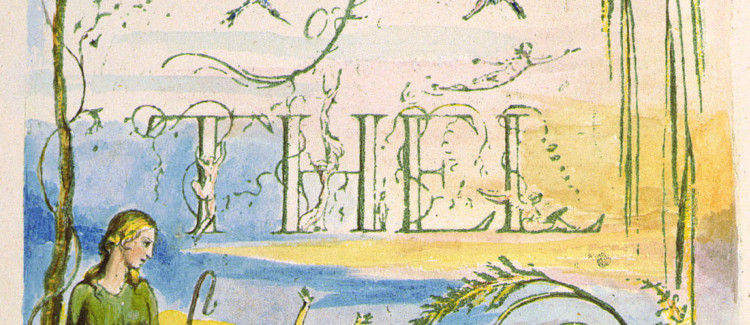The Book of Thel – Zum Wassermann

Thel, however, isolates herself and complains about her life in innocence. She engages in conversation with the lilies-of-the-valley, the cloud and with Ms. Clay, the mother of the worm. These symbolic creatures sing of the wealth of their spiritual and physical life. Their life fulfillment and happiness are found by giving themselves over to others. They live by the creed: “Everything that lives, does not only live for itself.’
Ms. Clay invites Thel to the sublunar, the world of experience. Thel enters through the northern gate of the mortals, similar to Homer’s Odyssee. There, she hears voices from the graves moaning about the difficulties of life, about betrayal and unfulfilled desires, about restrictions and Death. With this picture of doom held before her, the surprised Thel flies as an equal back to her pastoral world of imagination.
Lucien Posman composed Thel’s quest for soprano and ensemble in 2001.
In 1984 Karel Goeyvaerts composed ‘Zum Wassermann’ as a prequel to his opera ‘Aquarius’. Within this, he sketches how humanity as a collective, through different stages of experiences, journey towards the era of the Aquarius, where new and balanced interpersonal relationship come into existence. Central in this dream is the harmony created when every individual finds their exact space in society correlated with the evolution of personal possibility.
Programme & credits
Lucien Posman (°1952)
The Book of Thel (2001)
Karel Goeyvaerts (1923-1993)
Zum Wassermann (1984)
SPECTRA conducted by Filip Rathé
Emma Posman, soprano
Calendar
XXX
VIDEOSTREAM
Media

